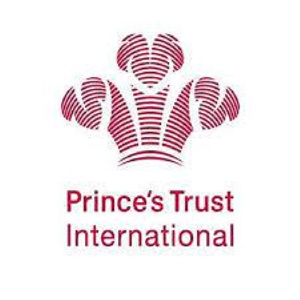 The Prince’s Trust International is an international charity group
The Prince’s Trust International is an international charity group
Of the young people (aged 18-35) surveyed in Ghana:
1. 65% said setting up their own business was the profession that they would most like to work in – the highest of all countries surveyed and ahead of jobs in government (49%) or working for a large corporation (54%).
2. 97% felt that digital literacy is important to future professional advancement.
3. 98% cited life skills such as self-confidence, teamwork and reliability, as vital to the future of work and more important than basic schooling (95%) and university qualifications (87%).
Founded by His Royal Highness The Prince of Wales, The Prince’s Trust group of charities now works in 18 countries and today launches their ‘Generation Stand up, Start up’ campaign.
The Trust is calling for partnership with employers and collaboration across civil society to meet young people’s needs for their future careers, following report findings that young people are interested in setting up their own businesses and eager to develop skills that are relevant for the future of work.
The campaign is informed by the ‘Future of Work’ report, supported by HSBC, which was commissioned by The Prince’s Trust Group and carried out by YouGov and Ipsos MORI across eight countries, including Ghana, as well as Canada, Jordan, Kenya, India, Pakistan, the UK and the USA.
The report seeks to amplify the voices of young people, exploring their hopes and aspirations and the support they need as the world adapts to Covid-19.
Part of The Prince’s Trust group of charities, Prince’s Trust International has been working in Ghana since 2019 with local partners Junior Achievement Africa, Youth Opportunity and Transformation in Africa (YOTA) and Environment 360. PTI programmes support young people in Ghana to learn, earn and thrive.
The pandemic has had a seismic impact on young people. Of the young people in Ghana who were surveyed, 49% felt that Covid-19 has negatively impacted their future employment opportunities. As young people contend with an uncertain future and an unstable labour market, listening to them is critical to understanding the right response.
The research highlighted three key areas central to the future of work for young people: sustainability, future skills and entrepreneurship.
Future Skills
Alongside a focus on sustainable careers, there was a desire from participants to develop life skills that will prepare them for the future of work. Among those surveyed in Ghana, 98% cited life skills such as self-confidence, teamwork and reliability as vital to the future of work and more important than basic schooling (95%) and university qualifications (87%). Young people were also united (97%) in thinking that digital literacy is important.
The Achieve Programme, delivered in partnership with Junior Achievement Africa, offers an alternative approach to learning for young people, enabling them to develop their skills and confidence through relevant, engaging and informal learning, in a non-traditional education setting.
As part of their ‘Generation Stand up Start up’ campaign, Prince’s Trust International is now calling for investment in future skills programmes to prepare young people for the workplace.
Entrepreneurship
The findings showed a positive outlook towards entrepreneurship among participants as the pandemic provided the opportunity for many, through necessity and creativity, to develop a ‘side hustle.’ Seen as a route to financial wealth and stability, 65% of young Ghanaians said setting up their own business was the profession that they would most like to work in, ahead of jobs in government (49%) or working for a large corporation (54%).
Currently, 26% of young people surveyed in Ghana work for themselves, among the highest of the countries in the report. Prince’s Trust International is committed to supporting this new generation of entrepreneurs with further training and investment.
Sustainability
The report shows that 86% of young people in Ghana are interested in green jobs such as recycling, environmental work and sustainable agriculture, and are keen to be agents of sustainable change. This figure was slightly higher for men (90%) than women (81%). Similarly, when choosing a company, 95% of young Ghanaians say they are interested in its environmental footprint.
But, despite the enthusiasm, further research internationally has shown there is a significant skills gap for those interested in a job in the green or digital economy. In response to this, Prince’s Trust International is calling for partnership with employers to create entry-level jobs in the green sector, with focused educational opportunities.
Will Straw, Chief Executive of Prince’s Trust International, says:
“Through creativity and necessity, Covid-19 has provided an opportunity for many young people to develop a side hustle. Our research shows that the majority of young people in Ghana want to build on this and create their own businesses. We are calling for support for this new generation of entrepreneurs so they can take control of their own destiny.”